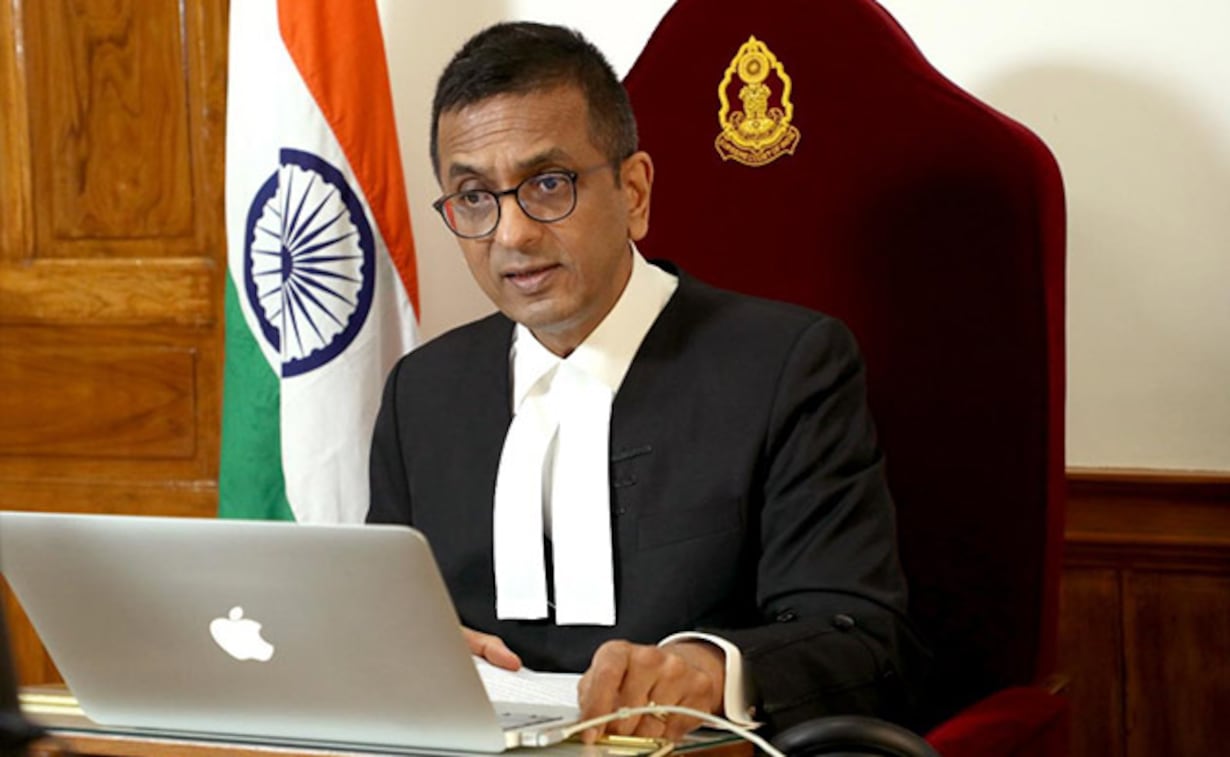NEW DELHI: The Chief Justice of India D Y Chandrachud stated that the mere creation of arbitration institutions is insufficient, it is essential to ensure that these dispute resolution hubs are not controlled by a “self-perpetuating clique.”
Speaking at the Supreme Court of the United Kingdom, CJI Chandrachud emphasized that the time is ripe for countries such as India to step up and create a robust culture of commercial arbitration. The robust institutionalisation of arbitration will further enhance the culture of arbitration in the Global South.
He noted that arbitration is an alternative method of dispute resolution and has evolved to become the preferred method for seeking commercial justice, rather than just an “alternative.”
“In recent years, institutions such as India International Arbitration Centre and Mumbai and Delhi International Arbitration Centers have been set up and are seeing a steady flow of arbitration matters,” the CJI stated.
“But the mere creation of institutions is not sufficient. We have to ensure that these new institutions are not controlled by a self-perpetrating clique. These institutions must be based on the foundation of robust professionalism and the ability to generate consistent arbitral processes,” he added.
The CJI stated that transparency and accountability, the values by which the work of conventional courts is assessed and critiqued, cannot be alien to the world of arbitration.
“Arbitral institutions are uniquely placed to cooperate with other arbitral institutions around the world to adopt best international practices and procedures. This will create a global convergence of arbitral procedures, creating more uniform institutional rules and structures. I hope the Indian arbitral institutions emulate the success of their global counterparts in the years to come,” he added.
Reiterating that the substitution of courts should not result in the creation of opaque structures, Chandrachud emphasized that the call for greater diversity in the world of arbitration is based on the firm belief that incorporating diverse viewpoints, whether in terms of gender or from the Global South, will result in a more broad-based process.
Stressing the role of technology in the arbitration process, the CJI noted that technology plays a major role in how arbitration proceedings are conducted, offering cost-effective and time-effective solutions.
“You have instances where one party is based in Delhi, another in Bengaluru, while the arbitrators are in London, Mumbai, and Singapore. Technology provides the digital environment allowing them to participate in arbitral proceedings virtually,” the Chief Justice of India said.
“As in law courts, Covid-19 provided an impetus to modernizing the arbitral process. Likewise, the world of arbitration impacted the processes adopted by courts as well,” he added.
Chandrachud stated that adopting technology at all levels of arbitration proceedings will make the process more efficient and, importantly, more accessible. “Technology and artificial intelligence add value to the services provided by arbitral institutions in matters such as reviewing documents or transcribing the proceedings,” he said.
The Chief Justice noted that the courts in India are overburdened despite the High Courts disposing of 2.15 million cases and the District Courts disposing of 44.70 million cases in 2023. “These figures show the trust that the people of India have in their judiciary. Our judiciary functions on the mantra that no case is small or big. Every aggrieved person who approaches the doors of the judiciary has the right to a just remedy,” Chandrachud said.
“In attending to these grievances, the courts in India perform their plain constitutional duty. The width of our jurisdiction was designed to ensure the widest access to justice.
But surely every case need not find a remedy before a court, with emerging forms of dispute resolution such as arbitration and mediation gaining acceptance,” he added.

